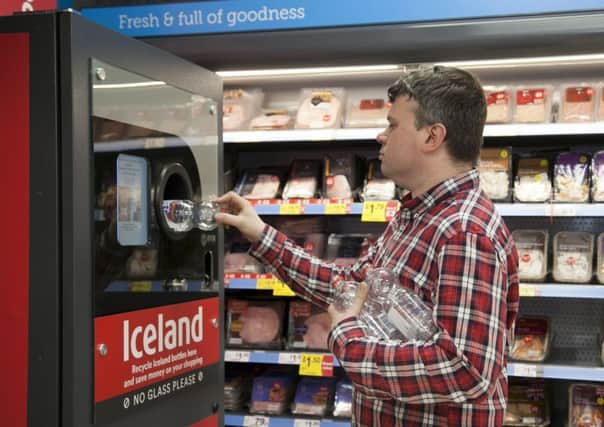Scots supermarket installs reverse vending machine for plastic bottles


The new facility has been put in as part of a six-month trial into the technology, ahead of Scottish Government plans to roll out deposit-return facilities across the country.
It will accept bottles of all sizes and brands bought in Iceland and Food Warehouse outlets. Shoppers using the new apparatus will receive a 10p voucher to spend in-store for every bottle returned.
Advertisement
Hide AdAdvertisement
Hide AdThe move comes shortly after the frozen food retailer unveiled a similar machine in a London branch, becoming the UK’s first supermarket to do so.
Richard Walker, group managing director of Iceland Foods, said: “At least one third of plastics, much of this relating to packaging, is single-use and then discarded – plastic bottles are a prime example.
“In the UK consumers go through an estimated 13 billion plastic drinks bottles a year, but more than five billion are incinerated, sent to landfill or left to pollute our streets, countryside and marine environment. This must change, and we want to be part of that change.
“Through this initiative, we hope to help make it easier for people to act in an environmentally conscious way while tackling the threat of the millions of plastic bottles that go unrecycled every day. Scotland is making great strides in its fight against plastic pollution and we’re keen to work with key stakeholders like Zero Waste Scotland and the Scottish Government to ensure we make it as easy as possible for shoppers in Scotland to reduce the amount of plastic they use.”
It is estimated more than 12 million tonnes of plastic enters the world’s oceans every year, posing a serious threat to marine life.
Plastic pollution can harm or kill sea creatures through entanglement in debris such as abandoned fishing gear and as a result of eating plastic mistaken for food.
The Scottish Government has pledged to tackle “throwaway culture” and has announced a ban on the sale and manufacture of plastic-stemmed cotton buds and microbeads in cosmetic products.